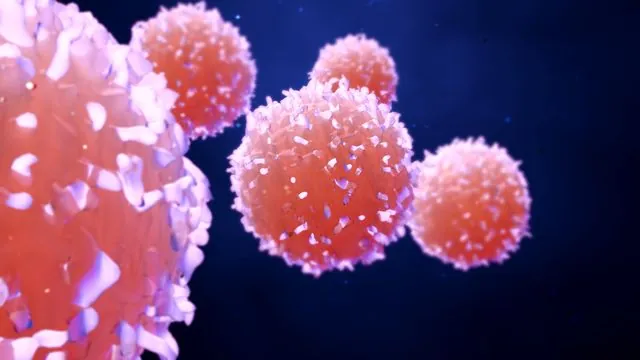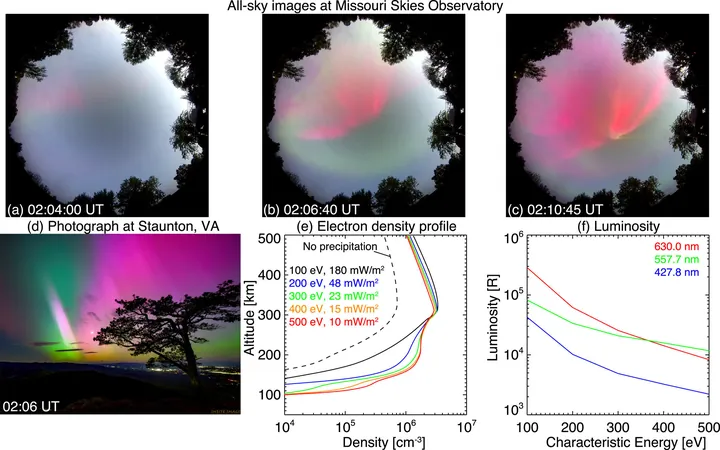
Groundbreaking Discovery Could Revolutionize Prostate Cancer Treatment!
2024-12-18
Author: Jia
Revolutionary Mechanism Unveiled in Prostate Cancer
Recent research from Weill Cornell Medicine has unveiled a crucial mechanism in prostate cancer that could lead to innovative diagnostic tools and new therapeutic approaches. This study, published in *Nature Communications*, highlights how prostate cancer exploits the body's natural growth regulation processes, creating a path for potential treatments that could significantly improve patient outcomes.
The Role of the Androgen Receptor
At the core of this research is a protein known as the androgen receptor, which normally helps regulate prostate development. It signals cells to cease growth and maintain a healthy state, primarily in response to male sex hormones like testosterone. However, in the prostate cancer context, this receptor is hijacked, causing it to trigger continued cell growth and tumor formation.
Dr. Christopher Barbieri, a prominent urologic oncologist and senior author of the study, explained, “The androgen receptor is fundamentally reprogrammed to push cancer cells into an accelerated growth phase.” The research team demonstrated that in the tumor microenvironment, the androgen receptor can act both as an accelerator and a brake for cell growth. In tumor cells, it’s been observed that the receptor redirects its activity to facilitate uncontrolled proliferation.
Insights from Research
Traditionally, much of the research has concentrated on how androgen receptors activate genes that promote cell growth. However, Barbieri's team discovered that these receptors also lose their ability to bind effectively to certain DNA sites that typically suppress cell proliferation, allowing cancer cells to thrive.
Innovative Approaches to Understanding Prostate Cancer
To investigate this phenomenon, co-first author Michael Augello developed a panel of synthetic proteins to assess the various roles of the androgen receptor in both normal and cancerous cells. "Our approach allowed us to decode the underlying regulatory programs that remain embedded but are distorted in cancer cells," said co-first author Xuanrong Chen.
Cataloging Androgen Receptor Activities
The team meticulously cataloged the binding activities of the androgen receptors in cultured prostate cells, identifying a unique gene family that possesses the power to halt cancer cell growth. "By activating these genes associated with the androgen receptor, we can effectively shut down the growth of prostate cancer cells,” Barbieri stated, emphasizing that similar treatments do not interfere with healthy prostate cells.
Promising Correlation in Patient Samples
Intriguingly, the team also screened tissue samples from prostate cancer patients. Their findings revealed a promising correlation: tumors that expressed more of the normal androgen receptor program were associated with improved patient prognosis and responses to conventional therapies. This insight implies that restoring the natural functions of the androgen receptor may lead to better treatment strategies.
Future Directions in Prostate Cancer Treatment
The implications of this study are profound. The researchers are now focused on developing diagnostic tests that could tailor therapeutic regimens for patients based on the expression of the androgen receptor's regulatory programs. Furthermore, there is potential for creating new treatments that reactivate these normal growth controls in prostate cancer cells, effectively dampening their growth.
Conclusion: A New Era in Prostate Cancer Treatment
As we stand on the brink of a new era in prostate cancer treatment, this research not only sheds light on the complexities of tumor biology but also ignites hope for innovative strategies that could significantly improve patient outcomes in the near future. Prostate cancer patients and their families should stay tuned for what could be a game-changer in the fight against this prevalent disease!




 Brasil (PT)
Brasil (PT)
 Canada (EN)
Canada (EN)
 Chile (ES)
Chile (ES)
 España (ES)
España (ES)
 France (FR)
France (FR)
 Hong Kong (EN)
Hong Kong (EN)
 Italia (IT)
Italia (IT)
 日本 (JA)
日本 (JA)
 Magyarország (HU)
Magyarország (HU)
 Norge (NO)
Norge (NO)
 Polska (PL)
Polska (PL)
 Schweiz (DE)
Schweiz (DE)
 Singapore (EN)
Singapore (EN)
 Sverige (SV)
Sverige (SV)
 Suomi (FI)
Suomi (FI)
 Türkiye (TR)
Türkiye (TR)